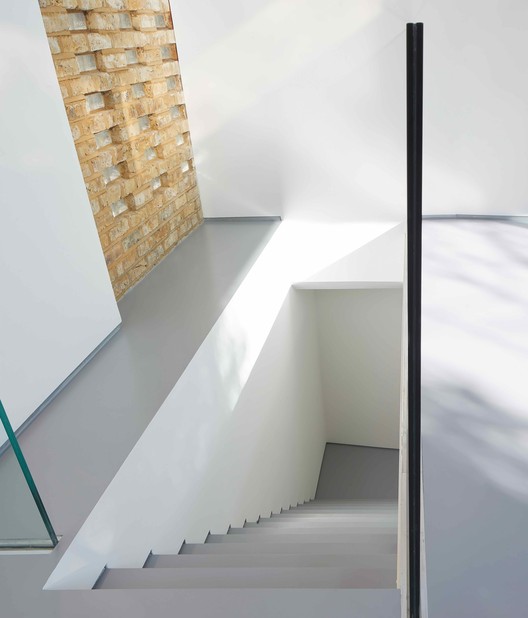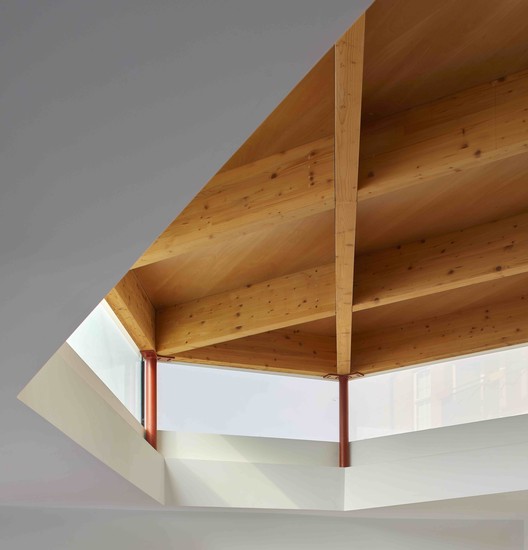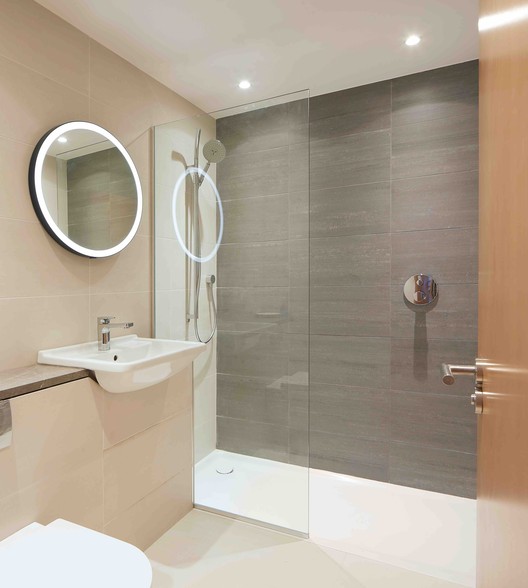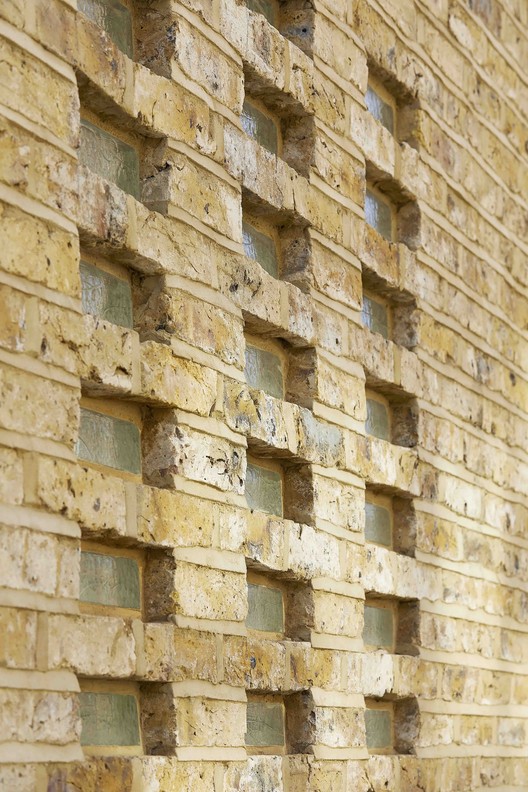
-
Architects: Alan Power Architects Ltd
- Area: 110 m²
- Year: 2019
-
Photographs:Hufton + Crow
-
Manufacturers: Ashlar Mason Ltd, Constructional Timber Manufacturers Ltd, Enfield Joinery Ltd, Glasszoo Ltd, IPIG Ltd, IQ Glass Ltd, Millboard Ltd, Mistek Ltd, Modern Doors Ltd, New Haden Pumps Ltd, Protan, The Resin Floor Co. (UK) Ltd, Tower Ceramics Ltd
-
Lead Architect: Alan Power

Text description provided by the architects. This project is for a 97 sq m two-bedroom GIA new build house on lower ground and ground floors, built on open land just south of Whitechapel High Street, in the Stepney Green Conservation Area. This project offered a fascinating opportunity to create a dwelling from a leftover scrap of urban land. It demonstrates what can be achieved by focusing on what might be called the spirit of place, rather than approaching the design from any particular stylistic viewpoint – that is, by developing a series of dwelling spaces that address the particular characteristics of a place, or a site. The clues to the design lay in the site context of a conservation area, creating privacy and seclusion from a prominent street location, orientation for light and sun, the open sky of the gardens of adjacent properties to the south, and the desire to create a sense of a primary space as a focus for the house that appeared to be experiencedly greater than the modest scale of the house – what Gaston Bachelard has called ‘intimate immensity’.
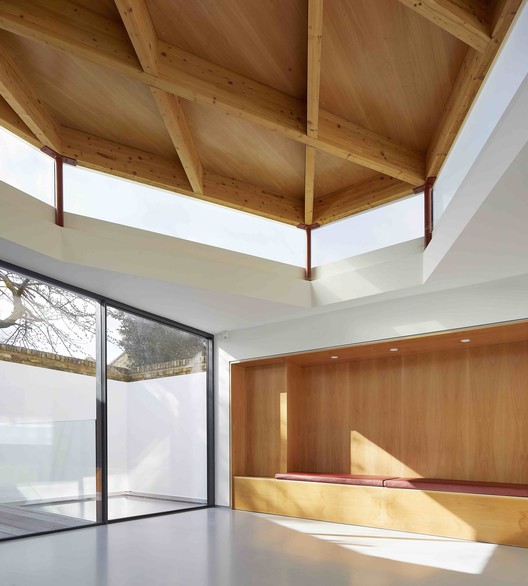


The site is a slightly distorted rectangle, with the long axis aligned east to west, with the frontage along Redmans Road being the north elevation. To the east is Redlands Primary School; the land adjacent to the east boundary on the school side is a bio-diverse wooded garden, left to develop in a semi-wild state as a pedagogical tool for the school. To the south and west are the gardens to the rear of the houses along Jubilee Street.

A second-hand stock brick wall to match the adjacent brickwork in Jubilee Street establishes the building’s position along Redmans Road, and in the conservation area. The building signifies its presence discreetly within and above this wall: a single opening on the eastern end of the site provides the entry into the building via an open side passage. Perforated brickwork adjacent to the entrance, with bespoke inset solid glass blocks, provides light into the internal staircase down to the lower level. The main living space, the focus for the house, is signified by the glazed lantern light sitting above the stock brick boundary wall.

The new building has a ‘L’ shaped plan, laid out around a two-level courtyard located in the south-west quadrant of the site. On the upper level a terrace provides external space as the focus for the living areas; on the lower level, a landscaped courtyard serves the two bedrooms, each with its own bathroom. The front door to the new building is off the side passage, thereby providing a double layer of privacy and security for the occupants. The entrance door then opens directly into the main living space.

To enhance the garden setting of the building, and for reasons of sustainability and biodiversity, the roof to the lantern light is sedum. When viewed from the upper levels of the adjacent houses along Jubilee Street, this will also help to provide a sense of the continuation of the neighbours’ gardens, and recalls the previous garden character of the site.










